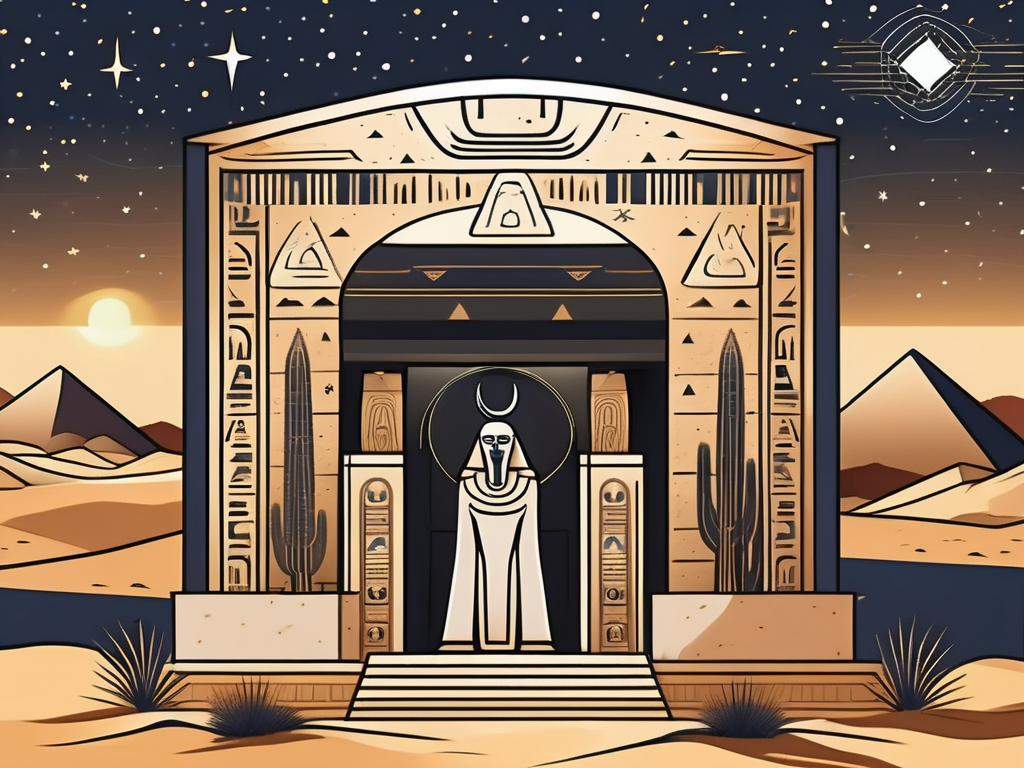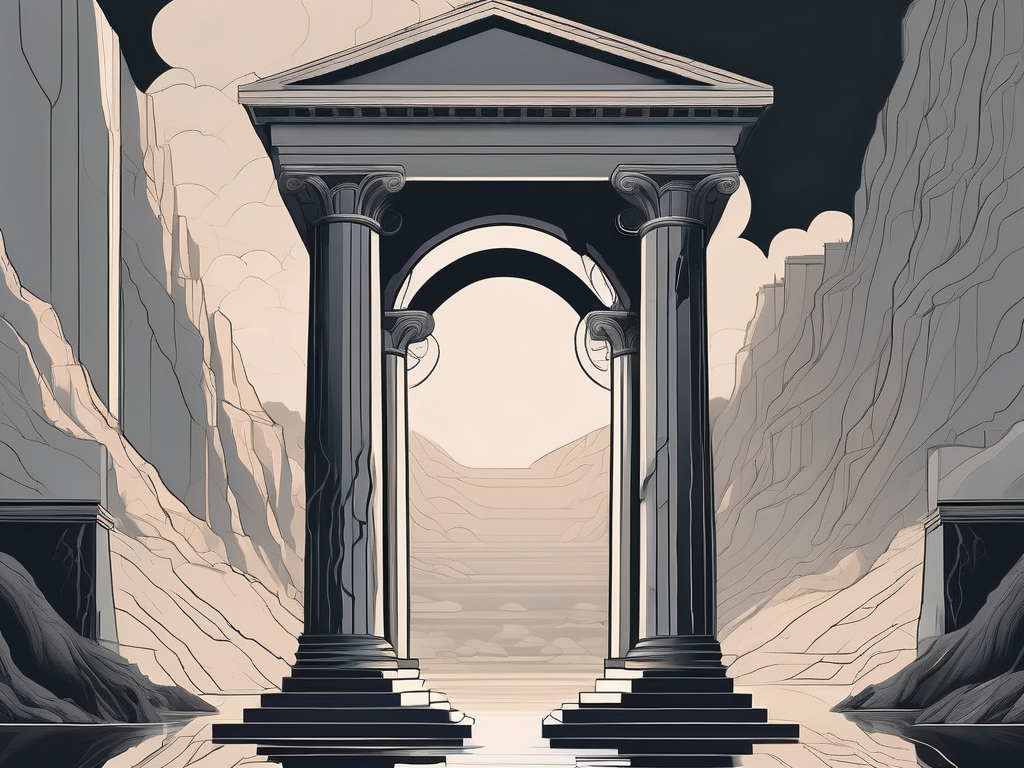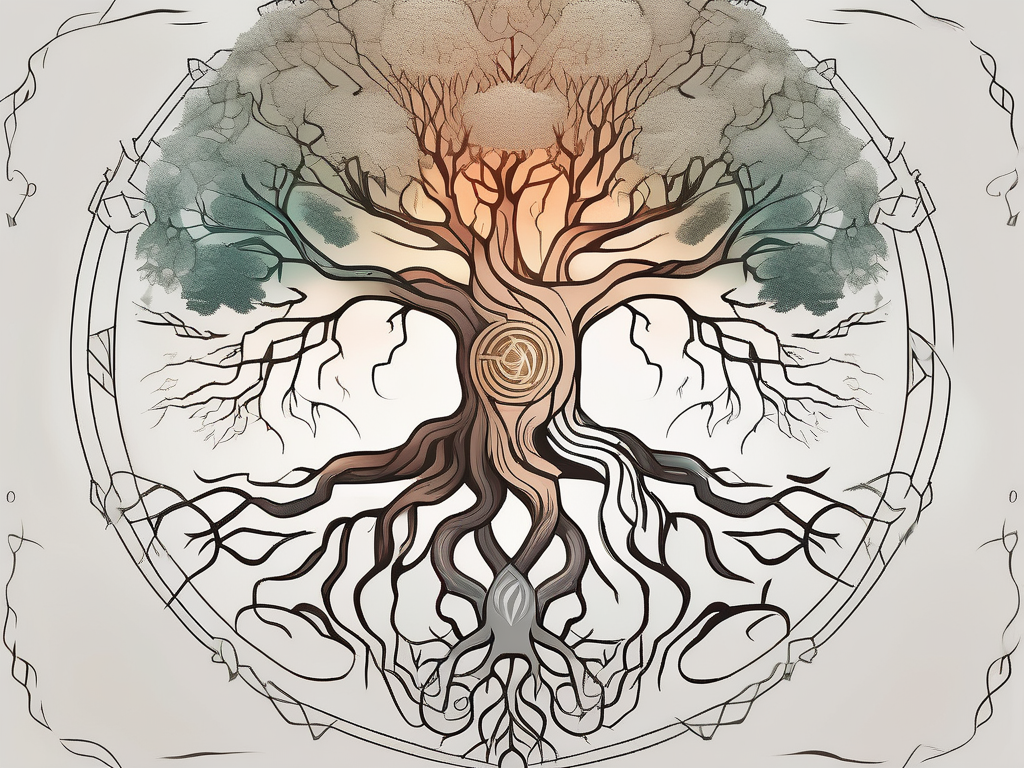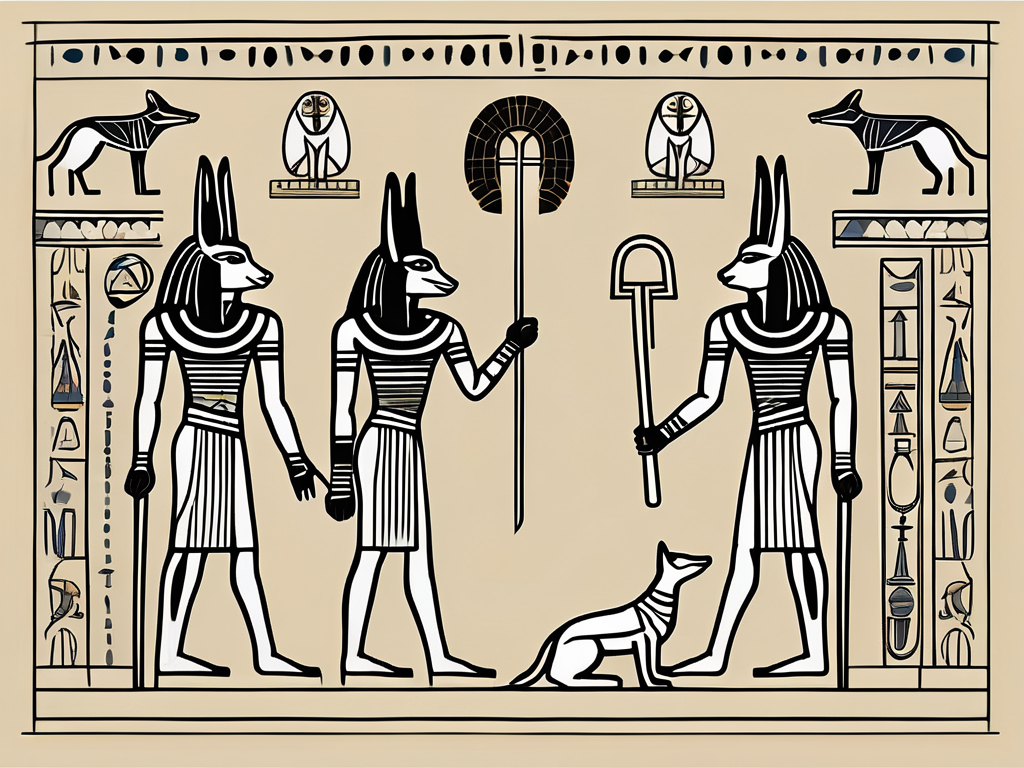In ancient Egyptian mythology, the concept of the Field of Reeds holds a special place. It is a mysterious realm that was believed to be the afterlife destination for those who lived a righteous life. Let’s dive into this intriguing topic and uncover the secrets surrounding the enigmatic Field of Reeds and its association with an important Egyptian God.
Understanding the Concept of the Field of Reeds
The Field of Reeds, also known as Aaru or the Field of Rushes, was envisioned as a lush and fertile land in the Egyptian afterlife. It was believed to be a paradise where the deserving souls could enjoy eternal bliss and happiness. The concept of the Field of Reeds played a significant role in ancient Egyptian beliefs, offering a unique perspective on the afterlife.
The Field of Reeds in Ancient Egyptian Beliefs
In ancient Egyptian mythology, the Field of Reeds represented a heavenly abode for the souls of the righteous. It was described as a land filled with abundant crops, flowing rivers, and pleasant gardens. The ancient Egyptians believed that after death, their souls would travel to the Field of Reeds, where they could live in harmony with the gods and enjoy an eternal existence.
According to the ancient texts, the journey to the Field of Reeds was not an easy one. The souls had to navigate through the treacherous Duat, the realm of the dead, overcoming various challenges and trials. Only those who successfully passed these tests were granted access to the Field of Reeds, where they could bask in the glory of the gods and experience everlasting joy.
It is important to note that the Field of Reeds was not accessible to everyone. Only those who lived a virtuous life and followed the principles of Ma’at, the goddess of truth, justice, and order, were deemed worthy of this blissful afterlife. This belief had a profound impact on the ancient Egyptian society, as it served as a moral compass for individuals to lead righteous lives.
Symbolism and Significance of the Field of Reeds
The Field of Reeds held great symbolic significance in ancient Egyptian culture. It represented the ultimate reward for a life well-lived. The fields, lush with crops and vegetation, symbolized prosperity and abundance. The concept of eternal life in the Field of Reeds inspired the Egyptians to strive for harmony and righteousness in their earthly existence.
Moreover, the Field of Reeds also symbolized rebirth and renewal. It was believed that the deceased would be rejuvenated and experienced a new beginning in the afterlife. This symbolism of the Field of Reeds provided solace and hope to the ancient Egyptians during times of grief and loss.
Furthermore, the Field of Reeds was not just a physical place but also a state of mind. It represented a state of perfect balance and harmony, where the souls could escape the troubles and hardships of the mortal world. In the Field of Reeds, the righteous souls could find peace and tranquility, free from the burdens of earthly existence.
The ancient Egyptians also believed that the Field of Reeds was a reflection of the natural world. It was seen as a mirror image of the fertile lands along the Nile River, which sustained their civilization. The abundance of crops and flowing rivers in the Field of Reeds symbolized the life-giving power of the Nile and its importance in sustaining both the physical and spiritual well-being of the ancient Egyptians.
In conclusion, the concept of the Field of Reeds played a central role in ancient Egyptian beliefs about the afterlife. It represented a paradise where the righteous souls could enjoy eternal bliss and happiness. The symbolism and significance of the Field of Reeds inspired the ancient Egyptians to strive for righteousness and provided them with hope and solace during times of grief. It served as a reminder of the importance of leading a virtuous life and finding harmony in both the physical and spiritual realms.
The Egyptian God Associated with the Field of Reeds
At the center of the Field of Reeds mythology was Osiris, one of the most important gods in the Egyptian pantheon. Osiris was not only the ruler of the afterlife but also the judge who determined an individual’s worthiness to enter the Field of Reeds.
The Role and Importance of the God
Osiris played a crucial role as the god of the afterlife and the judge of the deceased souls. It was Osiris who evaluated a person’s heart, weighing it against the feather of Ma’at to determine their fate. Those who passed this judgment were granted access to the Field of Reeds, while others faced a less favorable outcome.
Osiris was revered as a benevolent and just god who provided guidance to the deceased during their journey to the afterlife. His role in the mythology of the Field of Reeds not only emphasized the importance of a virtuous life but also instilled a sense of hope for a peaceful and fulfilling existence beyond death.
The God’s Connection to the Afterlife
Osiris’ association with the Field of Reeds strengthened the belief that the afterlife was attainable and rewarding. He was seen as a compassionate deity who cared for the well-being of the souls in the afterlife. It was Osiris who ensured that the righteous souls were granted eternal life and happiness in the Field of Reeds.
Furthermore, Osiris’ connection to the afterlife also reflected the idea of resurrection and regeneration. His own death and subsequent revival served as a symbol of life’s cyclical nature and the possibility of rebirth after death.
Theological Interpretations of the Field of Reeds
Throughout history, scholars and theologians have offered various interpretations of the Field of Reeds and its symbolism. These interpretations shed light on the complex nature of Egyptian religious beliefs and provide different perspectives on the concept of the afterlife.
The Field of Reeds as a Paradise
One interpretation of the Field of Reeds views it as a paradise, a utopian realm where the deserving souls could find eternal peace and joy. This interpretation emphasizes the significance of righteousness and moral conduct in ancient Egyptian society and underscores the importance of leading a just life to secure a blissful afterlife.
The concept of the Field of Reeds as a paradise resonates with our universal desire for a better existence beyond death. It offers a sense of hope and reassurance that our actions in this life can transcend into a rewarding afterlife experience.
The Field of Reeds as a Journey
Another interpretation of the Field of Reeds views it as a metaphorical journey rather than a physical place. In this view, the Field of Reeds represents the soul’s transformation and purification during the process of death and rebirth.
According to this interpretation, the Field of Reeds becomes a symbolic representation of the transformative journey undertaken by the deceased soul. This journey involves overcoming obstacles, facing judgment, and ultimately achieving spiritual enlightenment.
Archaeological Findings Related to the Field of Reeds
Archaeological discoveries have provided valuable insights into the ancient Egyptian beliefs surrounding the Field of Reeds. These findings include artifacts and physical representations that give us a glimpse into the cultural and religious significance of this mystical realm.
Artifacts and Their Significance
Artifacts discovered by archaeologists, such as tomb paintings and funerary objects, often depict scenes related to the Field of Reeds. These artistic representations provide a visual understanding of how the ancient Egyptians envisioned this afterlife realm.
The presence of offerings, such as food, tools, and jewelry, in tombs also suggests the importance attached to the Field of Reeds. These offerings were believed to sustain the deceased in their afterlife journey and ensure their well-being in the Field of Reeds.
Temples and Tombs: Physical Representations of the Field of Reeds
The construction of elaborate temples and tombs was an integral part of ancient Egyptian religious practices. Many of these structures, such as the mortuary temples dedicated to pharaohs, were designed to mirror the idealized representation of the Field of Reeds.
The architecture, artwork, and inscriptions found in these temples and tombs served as a reminder of the Field of Reeds and its significance in the afterlife. These physical representations offered a tangible connection to the mystical realm and further reinforced the belief in its existence.
The Field of Reeds in Modern Culture
Even in modern times, the allure of the Field of Reeds continues to captivate people’s imagination. Its influence can be seen in various forms of contemporary art, literature, and cultural practices.
The Field of Reeds in Literature and Film
Authors and filmmakers often draw inspiration from ancient Egyptian mythology, incorporating elements of the Field of Reeds into their works. The concept of a heavenly afterlife destination continues to resonate with audiences, evoking a sense of wonder and fascination.
Novels, such as “The Alchemist” by Paulo Coelho, subtly touch upon the themes of the Field of Reeds, inviting readers to ponder the mysteries of life and death. In movies like “The Mummy,” the mythical realm finds representation, captivating audiences with its exotic allure.
The Field of Reeds in Contemporary Egyptian Culture
In modern Egyptian culture, the Field of Reeds still holds significance. It serves as a reminder of the country’s rich heritage and the enduring impact of ancient Egyptian mythology. The Field of Reeds is often referenced in art, music, and religious ceremonies, preserving the connection between the past and the present.
Furthermore, the concept of the Field of Reeds continues to shape societal values and beliefs, emphasizing the importance of leading a virtuous and righteous life.
Unraveling the Mysteries of the Egyptian God and the Field of Reeds
The Field of Reeds and its association with the Egyptian god Osiris have fascinated scholars, theologians, and enthusiasts for centuries. Exploring this enigmatic topic allows us to unravel the mysteries of ancient Egyptian mythology, while offering insights into human beliefs about the afterlife and the pursuit of righteousness.
The concept of the Field of Reeds serves as a timeless reminder of the human quest for a paradise beyond death, a place where our actions in this life hold eternal significance. Whether viewed as a physical realm or a metaphorical journey, the Field of Reeds continues to inspire awe and wonder, inviting us to contemplate the mysteries of life and beyond.












